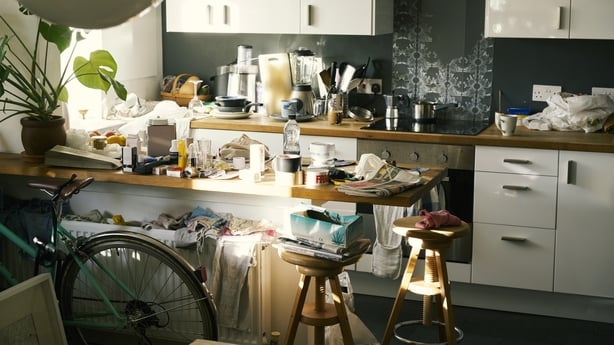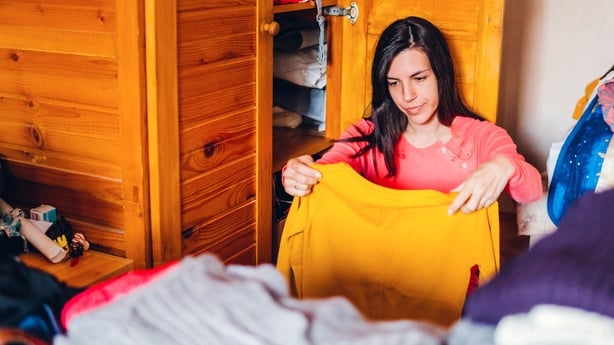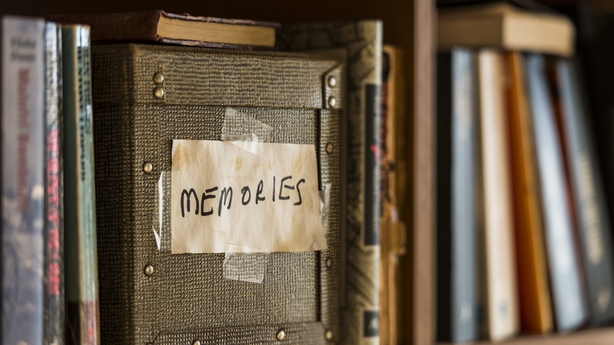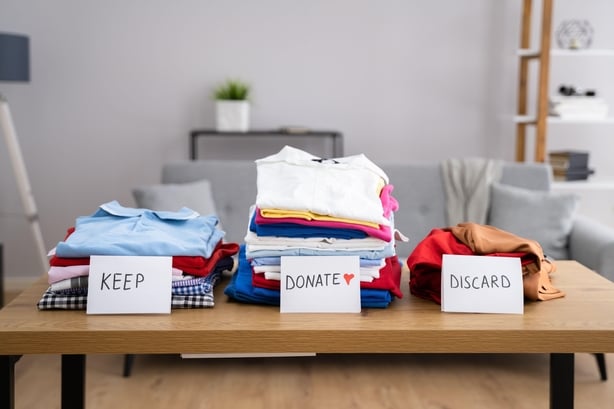Jack Moore, Hoarding Specialist and founder of Respect My Stuff, tells Oliver Callan how he helps people who had developed a hoarding problem and how to differentiate hoarding from cluttering. Listen back above.
Most of us have a clutter drawer stuffed with cables, old phone chargers and a large selection of Allen keys from flat-pack furniture kits. It's not great, but the mess is usually out of sight and doesn't impact too much on our daily lives.
Hoarding is different, says Jack Moore, hoarding specialist and founder of the social enterprise Respect My Stuff. Oliver Callan spoke to Jack about the differences between clutter and hoarding and his work training local councils to help tenants who are hoarding to free themselves from potentially dangerous mountains of stuff.

As a housing professional, Jack became interested in hoarding and was dismayed by the lack of understanding that surrounded it.
Forced clearing of homes by local councils was expensive and ultimately didn't solve the problem, he says. Over the past 10 years, the issue has become more widely understood and Jack's company now provides training across the UK and Ireland, helping councils and housing agencies deal sensitively with tenants who are hoarding.
Living with clutter is not the same as being a hoarder, he explains. In both scenarios, a person has accumulated huge amounts of stuff and the presence of these items in the home can be a fire hazard, a trip hazard and even an "avalanche hazard." A system has been developed for assessing the seriousness of the problem, as Jack explains:
"What we use is what we call the Clutter Image Rating, which is a series of photographs from 1-9, in the same room with different degrees of clutter or hoarding: one being the best, 9 being the worst."

Jack says the photographic score alone doesn’t give the full picture as you have to take the person’s attitude to their stuff into account. If their attachment seems out of proportion, then it's probably a hoarding issue:
"If the person who is living with all that stuff has a disproportionate attachment to that stuff – you know, it might be, they’ve got broken bits and pieces, 'No, don’t touch that – you can’t take that. That tissue, yeah, that can be used again.’ If they’ve got that disproportionate attachment, we are probably looking at hoarding."
Clutter can build up due to illness or depression, where people sometimes find it hard to clean their house or cook for themselves. They can get snowed under with takeaway cartons, newspapers, books and other items which then present a fire and a hygiene hazard, but it’s not necessarily hoarding.
"We’ve got several eights and nines that actually look like hoarding, but they aren’t hoarding, they are extreme clutter."

Hoarding can start from an early age and Jack says that people should keep an eye on family members if they think that the accumulation of items is becoming an issue. He says the effect on the life of the individual can be dramatic:
"People can collect, people can fill their house with stuff and it doesn't become a hoard. It becomes a hoard when it starts to interfere with their daily life. They can’t use the kitchen, they can’t use the bathroom, they can’t use the cooker because it’s just full of stuff and that’s where it becomes a hoard and a problem."
It’s important not to override the hoarder’s wishes as this can be counter-productive, Jack says. He refers to a case study in which he and his team worked with a council tenant for three hours a day over a period of several months, getting to know him and gaining his trust.
Jack suggested putting most of the items into storage and the tenant could decide later what to keep. Eventually, they came to a mutual agreement that the vast majority of the useable items could be donated to a local charity.

Treating each hoarder as an individual is the approach that works best. Jack says there are often specific reasons why people hang on to particular items.
For example, they may have run a business and are concerned about keeping documentation, but they hang onto far more than is required by law. The hoarding specialist can suggest that they keep a smaller amount of items, in order to make their home liveable again. Jack says he has dealt with some fascinating people who have overcome their hoarding tendencies by taking this more sensitive approach:
"The vast majority of the time, you’re not just talking about people of average intelligence, they are very smart, well-read, come from very incredibly interesting backgrounds. Every person is different and it’s actually getting through to that person and reasoning with them."
You can listen back to other great interviews on The Ryan Tubridy Show here.

